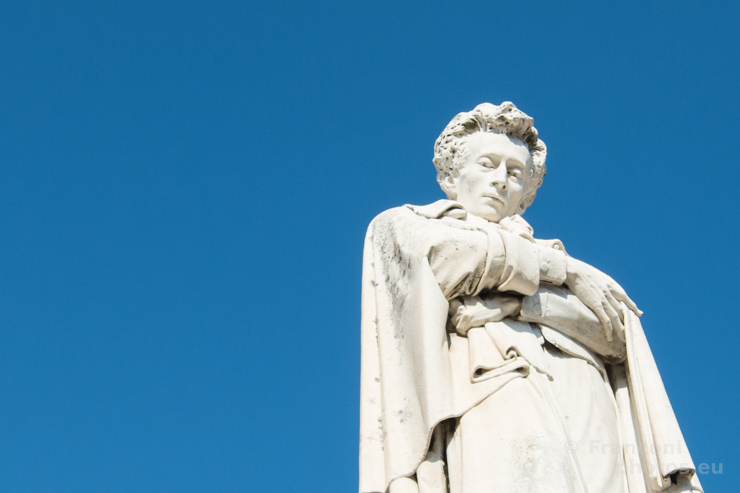Recanati, town of Leopardi.
In Italy, among the amazing hills of the Marche region, lies a medieval village perched on a hill where you can breathe the atmosphere of poetry. Recanati is where Giacomo Leopardi, one of the most important Italian poets, was born in 1798.
His poems have always inspired me. His works dictated by the conviction of the constitutive unhappiness of the human being and of the Mother Nature’s harsh laws gave me long reflections.
In a quiet and sultry summer, I finally decided to go and visit the lands of Giacomo Leopardi, where he found most of his inspirations. A walk among the roads inside the town walls reveals the beauty of an ancient Italian medieval village.
One of the first public libraries in Europe.
It is not difficult to imagine Leopardi wandering the streets of those times, nor it is difficult to imagine him finding infinite inspiration in the over 7000 volumes collected by his father, Monaldo Leopardi, in his library. A library whose constitution costed Monaldo almost the bankruptcy. At that time this library was among the most important in Europe and was one of the first ones to be opened to public. Too bad that there were no other visitors than his children. The books were definitely too erudite for the local population.
Giacomo Leopardi was a prodigious child, already at the age of ten he showed unequalled skills. At the age of fourteen he spoke several languages and from a pupil he became the teacher of his preceptors. A forbidden books’ shelf, allowed Giacomo to learn advanced notions in the scientific and astronomical fields.
Walking through the Leopardi House, still inhabited by his family descendants, one gets lost among paintings, books and objects collected over time.
The hillside of his most popular poem.
Unmissable is the hill, the one we all know because it inspired Leopardi’s most famous poem: the infinite.
In front of you there is an immense and wonderful expanse of hills covered, as far as the eye can see, with fields. It is not difficult to imagine Leopardi losing himself in the infinite sea of that silent beauty.
© Franconiphotos.eu – All rights reserved.

